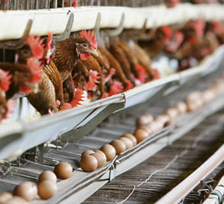US support for welfare legislation gains momentum

In the US, 64 egg producing companies collectively representing over 90% of shell egg production have expressed their support for the Egg Products Inspection Act Amendment (HR 3798), the United Egg Producers has confirmed.
Prominent research specialists have also added their endorsement of the proposed legislation. Dr Jeff Armstrong, President of California Polytechnic State University and previously affiliated to Michigan State University, has stated that he supports enriched colony cage housing and also passage of HR 3798, based on his scientific appraisal of the system. Dr. Temple Grandin of Colorado State University, and a prominent authority on animal welfare stated, “enriched colony cage housing is a system that the egg industry should adopt”.
The American Veterinary Medical Association Executive Board has voted to support HR 3798. Their statement included “the Executive Board deliberated extensively over opposition on this legislation, but ultimately believed that the welfare of the animals was the most important factor, even though they have significant concerns about the implications of establishing federal oversight for animal housing and management on the farm”.
A number of influential newspapers have editorialised in support of the legislation representing both coasts. Positive support was expressed by the New York Times, The San Diego Union Tribune, The Oregonian, Los Angeles Times and the News Tribune.
The Consumer Federation of America and the National Consumers League, representing purchasers of eggs have also expressed positive support for legislation which will force egg producers to switch to colony housing that will provide egg-laying hens with twice the amount of room they currently have or make a switch to cage-free housing.
Source: EggCite













